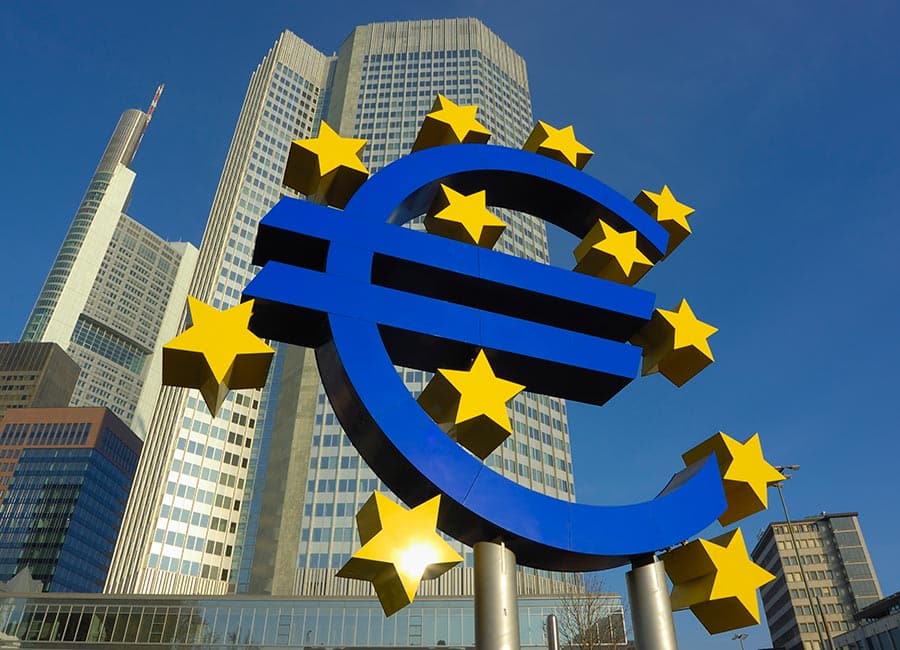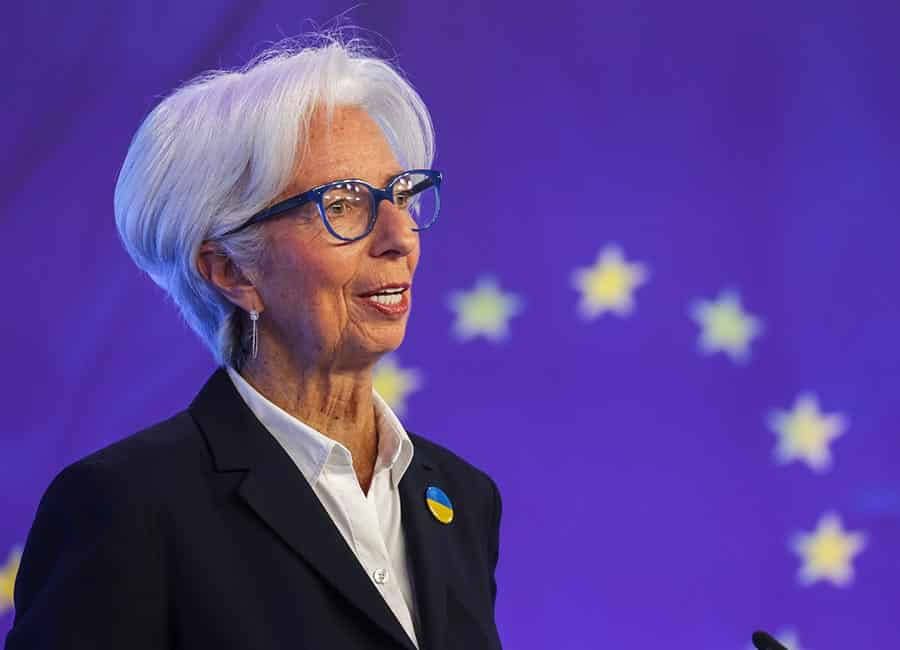Euro zone bond yields tumbled on Friday as data showed euro zone business activity unexpectedly contracted this month.
Overall activity in the bloc shrank due to an accelerating downturn in manufacturing and a near-stalling of service sector growth, with inflation pushing consumers to cut back spending, S&P Global's Composite Purchasing Managers' Index, a good gauge of economic health, showed.
Germany's 10-year bond yield, the benchmark for the euro area, fell as much as 15 bps to 1.08%, following similar data out of lead economies France and Germany earlier.
The two-year yield, sensitive to interest rate expectations, dropped over 20 bps to 0.45% as markets reduced their bets on European Central Bank rate hikes this year slightly.
"The worrying element is that actual output is deeply below 50, which means core Europe is probably already in a recession," said Viraj Patel, global macro strategist at Vanda Research, referring to the PMI score, which at 49.4 in July was below the 50 mark that indicates growth in activity.
"The worst around gas flows to Europe - and potential impact on European industries - is yet to come, even if flows partially recover."
A European recession he expects in the second half of the year will "likely be a deeper recession than European cross-asset markets are discounting," Patel added.
Markets reduced their rate hike bets slightly, pricing in just over 110 bps of European Central Bank rate hikes by December, down from around 120 bps before the data.
Many analysts say the bank, which hiked rates by 50 bps to exit negative territory on Thursday, has limited room to raise rates given risks facing the bloc's economy.

Elsewhere, Italian bonds outperformed slightly, tightening the closely-watched 10-year spread to Germany to 237 bps, from 240 bps at Thursday's close.
In focus remained the ECB's long-awaited new tool, the Transmission Protection Instrument (TPI), announced on Thursday, to buy bonds from countries whose spread to Germany the bank sees as soaring through no fault of their own.
Policymakers did not discuss bond market turmoil in Italy, whose government collapsed this week, at Thursday's meeting and do not expect to use their new tool imminently as conditions do not warrant it, sources told Reuters overnight.
The spread briefly widened to as high as 247 bps on Friday, nearing the peak on Thursday when investors were disappointed with the tool's degree of conditionality and the lack of detail provided.
"The ECB has made it clear that the TPI would not be deployed if spreads are widening from country fundamentals. Thus, just like in 2018, the markets remain the only disciplining mechanism," said Rohan Khanna, strategist at UBS.
+Additional reporting Reuters











